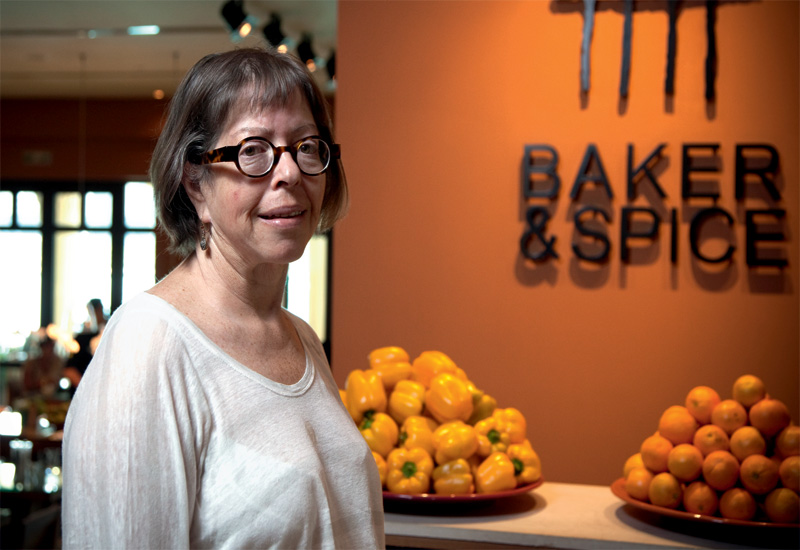 Yael Mejia of Baker & Spice says that chefs should source ingredients seasonally, as locally as possible, in order to stop shortchanging customers in
Yael Mejia of Baker & Spice says that chefs should source ingredients seasonally, as locally as possible, in order to stop shortchanging customers in
A serious commitment to seasonal cookery would reduce costs and carbon footprint and improve taste, according to F&B insiders.
Expecting to source the same ingredients 365 days a year is not only environmentally unfriendly because of the air freight miles, but it shortchanges consumers eating the food, argued Yael Mejia, founder of eco-café Baker & Spice.
“Food that is going to be imported has to be picked a long time before it’s ready to eat and it never recovers,” she said. “If you walk into a supermarket in the Middle East in July and see a pile of apples from the USA for sale, just think about when the American harvest is. Those apples are 10 months old. It’s no wonder they taste of nothing.”

| Advertisement |
Instead, Mejia believes chefs should get ingredients from the closest source possible according to what is available, and “pickle, preserve or compote items in the time of plenty for the time of want”.
“I am not a prisoner of my menu,” said Mejia. “If I can’t source something locally because it’s not in season then I will cook something else.”
Nils El Accad, CEO of Organics Food and Café, believes that sourcing solely organic produce, (which is seasonal by definition), should be a chef’s priority.
“Chefs say organic food is not readily available — that’s nonsense,” said El Accad. “It’s just not available the way they want it to be available, meaning the broccoli head might not be the perfect shade of green, the perfect size or available every day of the year. And yet a chef in my opinion has the responsibility to cook seasonally, to do justice to food and not just make a menu.”
But it isn’t always easy to find ingredients that tick every box, said Ritz-Carlton DIFC F&B manager, Antony McNeil.
“Balancing what the market is asking for with the ingredients available from the suppliers is always a challenge,” he said. “If the demand is there they’ll bring it in, but the broader community needs to pick up on it first.”
However, Canadian chef, Anna Olsen, believes the tide is already turning towards a more seasonal approach in the Middle East’s restaurant kitchens.
“I’ve noticed that there is a greater recognition of international seasons. People are aware when Australian kiwis are at their peak for example,” said Olsen. “Cooking seasonally certainly makes your job easier as a chef, rather than having to manipulate an ingredient that is not quite at its best.”








 Search our database of more than 2,700 industry companies
Search our database of more than 2,700 industry companies









